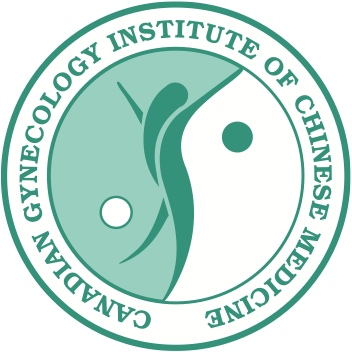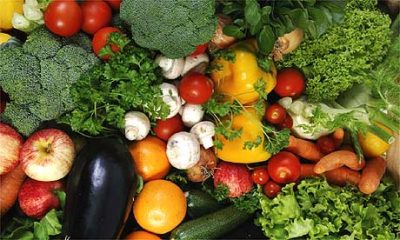Foods have nutritional qualities. The understanding of these food qualities vary in Eastern and Western medicine. One of the recurring themes in this website… and many other Alternative Medicine theories as well is to let food be your medicine. Knowing what to eat and when can easily decrease any symptoms of discomfort. Here are some foods that are common in the East and the West; foods that almost any Canadian household will have. Please reference the book Ancient Wisdom, Modern Kitchen, by Yuan Wang, Warren Shier, & Mika Ono for more information on food qualities as well as a collection of excellent recipes!
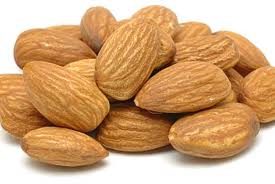
Almonds:
The West: have protein, fiber, B vitamins, Vitamin E, calcium, iron, magnesium, phosphorus, zinc, etc. Some studies show they can lower bad cholesterol and increase good cholesterol.
The East: promote a healthy brain and nervous system, increase longevity (Ayurvedic); cough with wheezing and dry throat, constipation, and lack of energy or appetite (Chinese Medicine (CM)).
Asparagus:
The West: high in vitamin K, folate, vitamins C & A, fiber, etc.
The East: chronic cough, high cholesterol, irritability, and depression.
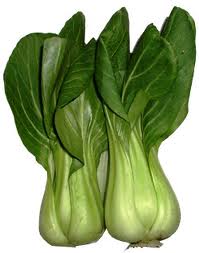
Bok Choy:
The West: vitamins C & A, calcium, fiber, indoles, and phytochemicals associated with anticancer properties.
The East: constipation, thirst, and promotes digestion.
Celery:
The West: high in vitamins C & K, it also supports the cardiovascular and digestive systems
The East: reduce blood pressure, promote urination, cool the Blood, stop bleeding, reduce headaches, and regulate menstruation.
Cherries:
The West: high in iron, antioxidants, cherries are used to treat gout.
The East: warms and strengthens the Spleen-Stomach to counteract fatigue and generate fluids
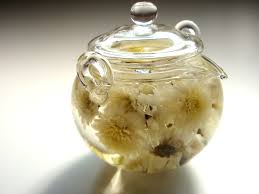
Chrysanthemum Flower:
The West: circulatory disorders, varicose veins, and atherosclerosis.
The East: hypertension, dizziness, vertigo, swelling and pain in the head, and various skin disorders
Cilantro/Coriander:
The West: high in vitamins A & C
The East: lack of appetite, nausea, indigestion, and promotes sweating
Cinnamon:
The West: helps control blood sugar, antibacterial
The East: hot in nature, this herb increases vitality, some types of abdominal pain, reduced appetite, diarrhea and to alleviate pain.
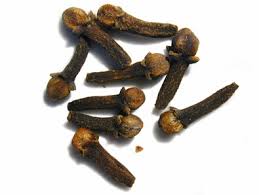 Cloves:
Cloves:
The West: promote digestion, inhibit micro-organisms such as bacteria, fungi and some toxins, an relieve pain when applied topically such as for gout and toothache
The East: respiratory problems and stomach upset (Ayurveda); stomach upset, vomiting and diarrhea (Africa); gastric upset and impotence (CM).
Cucumber: Food qualities
The West: diuretic, contain water, fiber (skin), vitamin C, and minerals such as silica, potassium and magnesium.
The East: skin irritations (used in soap in the Middle East); thirst, promote urination, reduce swelling (edema), and they are used topically to treat red, swollen and dry eyes, regenerate the skin and heal sunburns.
Eggplant:
The West: high in fiber, potassium, manganese, copper, thiamine, vitamin B6, folate, magnesium and niacin. Some postulate eggplant useful in preventing atherosclerosis and heart disease.
The East: aids in conditions of swelling, pain, hemorrhoids, and breast inflammation (mastitis/sores).
Garlic:
The West: keeps food fresh by killing bacteria so it is known as an antibacterial with immunity-enhancing properties. It is also known to thin the blood, dilate blood vessels and inhibit fat and cholesterol synthesis.
The East: reduces swelling, relieves toxicity, kills parasites and counteracts food poisoning.
Ginger:
The West: aids digestion, helps alleviate stomach upset (motion sickness).
The East: stomach upset, diarrhea, vomiting, nausea, appetite suppression, stops coughing, eliminates toxicity from seafood poisoning.
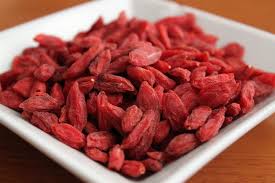
Goji Berries:
The West: high in beta-carotene, thiamine, riboflavin, vitamin C, etc., as well as other vitamins, minerals, antioxidants and amino acids. Goji berries can prevent macular degeneration, deter tumors, protect the liver and enhance the immune system.
The East: menopause, impotence, diabetes, blurred vision, and consumptive cough.
Grapes:
The West: grapes contain the phytochemical resveratrol which shows to increase resistance to cancer, heart disease and inflammation.
The East: general weakness, dry mouth with thirst, promote urination and reduce swelling (edema).
Honey:
The West: it is an effective antiseptic, soothes coughs; caution should be taken when feeding to infants as it can be harmful for immature intestinal tracts.
The East: calms cough, aids digestion, alleviates pain, relieves constipation.
Kiwi:
The West: a good source of vitamins C, A, & E, potassium, fiber, alpha-linoleic acid (an Omega-3). Kiwis have been shown to reduce the risk of blood clots, ward of asthma, protect against cancer and help prevent macular degeneration.
The East: generates body fluids, counteracts indigestion, promotes urination.
Lemon:
The West: high in vitamin C, citric acid, malic acid, thamine, riboflavin, calcium, phosphorus and potassium.
The East: quenches thirst, harmonizes and settles the stomach, relieves cough.
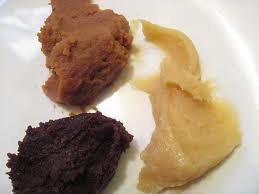 Miso:
Miso:
The West: has probiotic effects and is a good source of calcium, protein, iron, potassium and a variety of B vitamins.
The East: in Japan, miso is a common remedy for digestive problems, low libido and tobacco poisoning. Some have indicated its counteractive effects on radiation poisoning and cancer.
Mushrooms:
The West: vitamins such as thiamine, riboflavin, niacin and biotin, and minerals such as iron, selenium, potassium and phosphorus. Research is showing anti-cancer, anti-viral and immune-enhancing properties of a variety of mushrooms.
The East: general health and longevity.
- Button mushrooms are known to strengthen the stomach for energy and moisten dryness
- Maitake mushrooms help regulate the blood pressure, blood sugar and cholesterol levels
- Oyster mushrooms have shown to lower cholesterol levels; in eastern medicine, these mushrooms strengthen digestion, and treat painful obstruction syndromes
- Reishi mushrooms are the “mushroom of immortality” and prolong life without aging.
- Shiitake mushrooms strengthen digestion and are said to help rid the body of excess animal fats and salt
Oranges:
The West: high in vitamin C
The East: relieves thirst, calms restlessness, counteracts some types of nausea and vomiting
Peaches: Food Qualities
The West: high in vitamin C and beta-carotene
The East: alleviates thirst, dry throat, constipation and painful menstruation
Peanuts:
The West: (unroasted) high in protein, B vitamins, magnesium, phosphorus, and zinc. They contain the phytochemical resveratrol which has been shown to aid longevity and reduce the risks of cardiovascular disease and cancer.
The East: increase strength and appetite, treats dry cough and throat, relieves constipation, promotes lactation.
Pears:
The West: a good source of vitamin C, riboflavin, vitamin B6, potassium, magnesium, etc.
The East: treats dry cough, constipation, restlessness
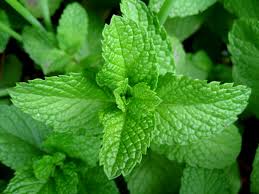 Peppermint:
Peppermint:
The West: relaxes the involuntary muscles of the digestive tract (for some types of indigestion, gas and bloating).
The East: fever, headache, sore throat, cough, rashes, and some types of gastric upset.
Pumpkin:
The West: a great source of beta-carotene, fiber, B vitamins, vitamins C & E, iron and potassium.
The East: considered good for diabetics, Asian pumpkins have shown to improve insulin levels and lower blood sugar; it is also good for increasing digestive function and energy levels.
Rice:
The West: Brown Rice has higher levels of vitamins B3 and thiamine as well as magnesium and iron. It has a lower glycemic index (due to its higher fiber content) and thus steadier and sustained energy levels. White Rice has a longer shelf life and is generally now fortified with the essential vitamins. Both have protein, carbohydrates and calories, all of which are readily available without needing much chewing, thus also beneficial for the young and old.
The East: digestive function, low energy, dry mouth, thirst, insomnia.
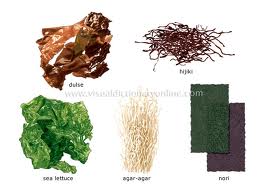 Seaweed:
Seaweed:
The West: minerals such as iodine, calcium, iron, zinc, copper, selenium, molybdenum, fluoride, and manganese.
The East: softens hardness (goiter, ovarian cysts, breast lumps, lymph node swelling).
Sesame Seeds:
The West: calcium, protein, phosphorus, iron and magnesium. Some studies are showing an effect on regulation of glucose levels in the body and the lowering of cholesterol.
The East: considered a longevity food, sesame seeds help with dizziness, blurred vision tinnitus, headache, numbness, constipation, and darkens graying hair (especially black sesame seeds).
Soybeans:
The West: a good source of protein, vitamins C & K, etc. It has shown to lower bad cholesterol and reduce hot flashes in menopausal women, though there is caution against excessive consumption.
The East: strengthens digestion, decreases fatigue and the feeling of heaviness and lethargy.
Tea:
The West: include many compounds such as flavonoids, fluoride, vitamins A, B2 & C, calcium, potassium, sodium, zinc, copper, iron, and manganese. Green tea has (inconclusively) shown to have effects on conditions such as cancer, diabetes and heart disease while improving mental alertness, aiding in weight loss, lowering blood cholesterol levels, inhibiting absorption of fatty foods, and protecting the skin from sun damage.
The East: settles the stomach, reduces nausea and vomiting, promotes urination, assists in clear thinking.
Thyme:
The West: high in vitamin K, iron and manganese. In Europe it has been long used as a topical antiseptic in mouthwashes and as an antispasmodic, digestive aid, and a cough remedy.
The East: stops cough, treats nausea, vomiting and indigestion
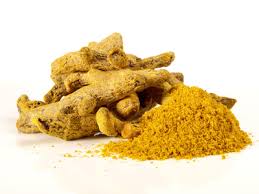 Tumeric:
Tumeric:
The West: recent research has shown that turmeric helps such conditions as inflammation, cancer, pain, Alzheimer’s disease, and diabetes.
The East: liberally used in Ayurvedic medicine, turmeric aids digestion, relieves pain and reduces swelling.
Walnuts:
The West: Omega-3 fatty acids. Research is showing promising results with walnuts counteracting Alzheimer’s disease.
The East: eases coughing and wheezing, counteracts fatigue, increases sexual potency in men, frequent urination, and relieve constipation.
Watermelon:
The West: high in vitamin C and beta-carotene as well as phytochemicals lycopene and citrulline. Lycopene has been found to reduce the risk of cancer, cardiovascular disease and macular degeneration. Citruline has been shown to increase the flexibility of the arteries.
The East: clears heat, relieves thirst, promotes urination.
These are just a few foods that are often available in both the East and West.
Caroline Prodoehl, R.TCMP
References:
Wang, Y., Sheir, W., & Ono, M. (2010). Ancient Wisdom, Modern Kitchen: Recipes from the East for Health, Healing, and Long Life. Da Capo Press, Perseus Books Group. Piladelphia, PA.
Also visit their website!
